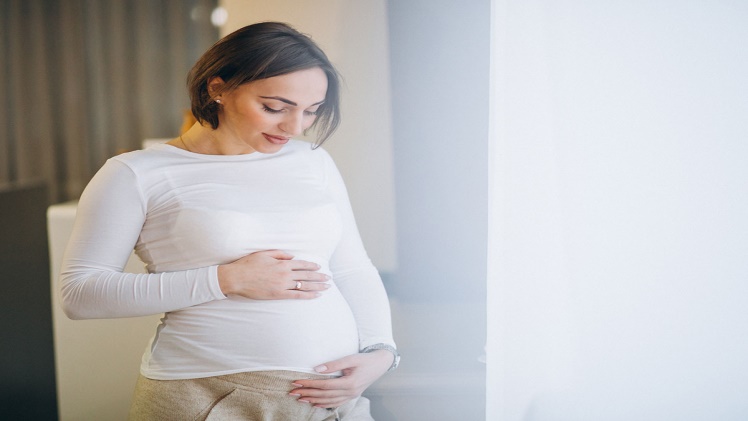For many women, pregnancy is beautiful. But that doesn’t mean it’s always rainbows and butterflies. While beautiful, pregnancy can come with some uncomfortable side effects, like changes in your skin and extreme mood swings. Unfortunately, the pitfalls of pregnancy aren’t discussed as much as they should be, leaving many women shocked by what they experience. In this article, we highlight five things about pregnancy you should know:
1. Skin Changes
Have you heard of the pregnancy glow? It’s not just a saying. During pregnancy, women have increased blood volume to support the growth of the uterus and baby. This volume increases oil gland secretion, giving pregnant women a beautiful glow.
Unfortunately, not all skin changes during pregnancy are good — some of them can be a nuisance. For example, many pregnant women develop melasma. This skin condition causes dark-colored patches and spots on the face, usually around the cheeks and forehead. Melasma, commonly known as the “mask of pregnancy,” is the result of the hormonal changes that occur during this time. Luckily, whether topical or cream, melasma treatment is available to help fade those patches after pregnancy.
Some pregnant women also experience hyperpigmentation during pregnancy around their nipples and anus. You may also notice a dark line near the middle of your abdomen. This is called linea nigra and is a result of hormonal changes as well. Don’t worry, though, this typically fades after the baby is born.
2. Stress
Let’s face it, pregnancy can be stressful. Not only is it difficult to physically carry a baby to term, but you’re probably nervous about giving birth and ailovemusic caring for a child. That’s natural. But unfortunately, too much stress can make your pregnancy symptoms worse.
Thankfully, there are ways to combat your stress. One of the best ways is to prioritize self-care. Don’t try to do everything, and make sure you take time to rest. Your body is going through a lot and needs time to relax. So, don’t hesitate to take naps and go to sleep before 9:00 p.m.
Another way to alleviate stress is to move your body. While exercise may be the last thing you want to do during pregnancy, it’s good for you and the baby. Even if it’s low-impact, working out is a great way to ease your mind and quiet any intrusive thoughts.
3. Digestive Issues
Whether it’s the occasional upset stomach, vomiting, or diarrhea, prepare to be in and out of the bathroom quite often. This is especially true for the first couple of trimesters. Digestive issues are common during pregnancy, and symptoms can vary depending on the individual.
Many women experience morning sickness. While uncomfortable, morning sickness typically goes away as you progress in your pregnancy. It can also be managed with prenatal vitamins, ensuring you’re drinking plenty of fluids, and eating simple foods.
Gastroesophageal reflux disease (GERD) is also common for pregnant women, typically during the second trimester. GERD impacts the lower esophageal sphincter and can cause various symptoms, including heartburn, dry cough, difficulty swallowing, chest pain, and vomiting. It’s important to note that GERD isn’t considered severe. It can be powerful idea managed with simple lifestyle changes, like avoiding trigger foods and elevating your head while sleeping.
If you have been diagnosed with irritable bowel syndrome (IBS), Crohn’s disease, or another type of condition, your symptoms might worsen during pregnancy. Diarrhea and constipation are also common during pregnancy. Thankfully, making small changes to your diet and lifestyle can remedy these conditions.
4. Mood Swings
Do you suffer from PMS (premenstrual syndrome) during your period? While common, PMS causes several uncomfortable symptoms, like food cravings, mood swings, tender breasts, and sometimes depression. You may be wondering exactly what this has to do with pregnancy. After all, being pregnant means you don’t experience PMS anymore, right? Not necessarily.
Women who’ve suffered from PMS in the past typically experience those symptoms, sometimes more severe, during pregnancy. There’s a good chance your mood swings and food cravings will increase, especially during your first trimester.
It’s also worth mentioning that many women, even those who haven’t experienced PMS, become depressed during pregnancy. This may come as a shock. But during pregnancy, your hormones change and fluctuate. These changes can impact your brain chemicals and cause anxiety and depression. According to research, about 7% of pregnant women experience depression during their pregnancy. It’s common, so don’t be embarrassed — it’s ok to get help.
5. Hair & Nail Growth
As mentioned, your hormones are all over the place during pregnancy. Not only can that cause mood swings and skin changes, but it can also impact your hair and nails.
In fact, pregnancy can cause hair growth as well as hair loss. It’s not uncommon to have hair grow in new places, too, or to see an increase in hair growth on your legs, arms, and pubic mound. However, your nails will most likely grow faster when you’re pregnant. Unfortunately, they may also become weaker due to the hormones.
You can combat hair loss and brittle nails by following a diet consisting of lean protein, iron, and other essential vitamins and nutrients. Also, rubbing cedarwood oil on the scalp can be stimulating, promoting hair growth. Consider pouring some on your hands and massaging it around your scalp at least a few times a week. Biotin and vitamin B supplements can help strengthen brittle nails.
Pregnancy can be an amazing experience but can also be uncomfortable and stressful. If you’re thinking about getting pregnant, it’s important that you know what to expect — the bad and the good.

